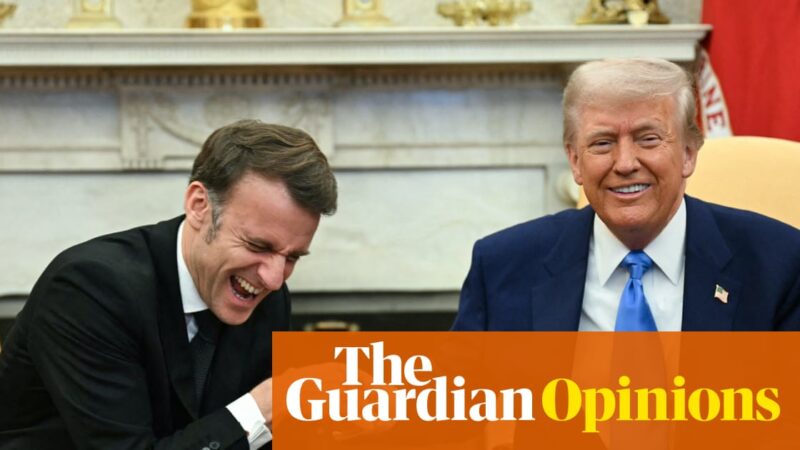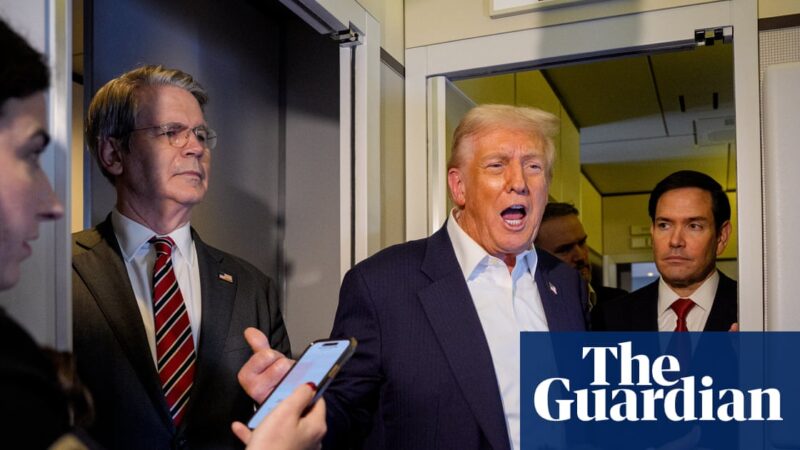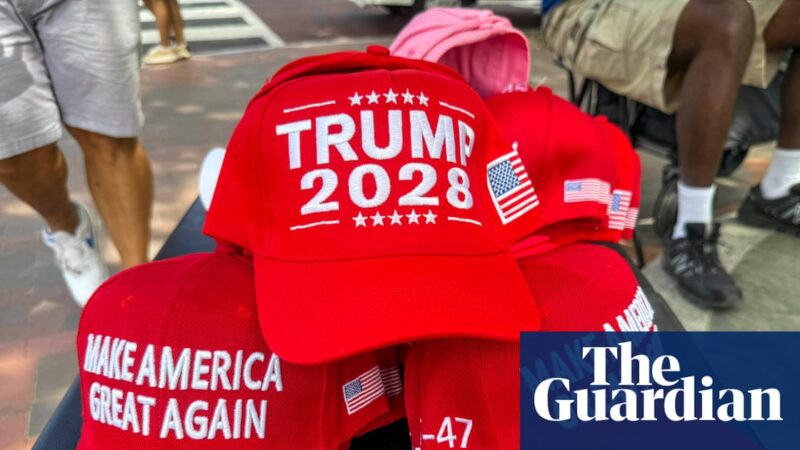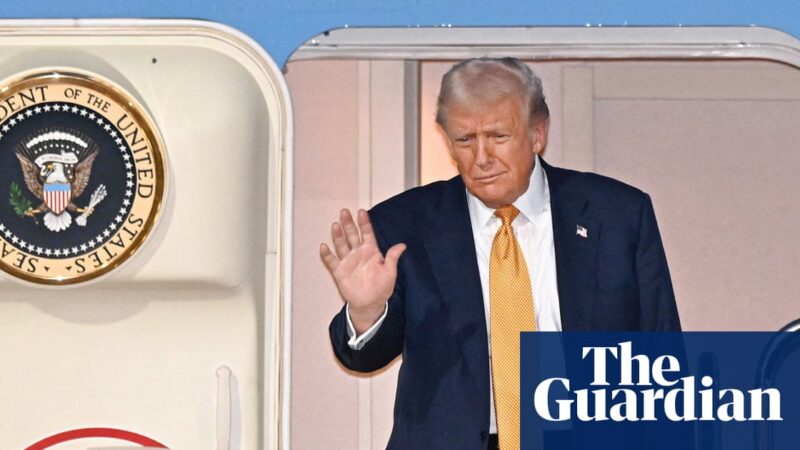Trump and Xi talks: what will be on the agenda when US president meets China’s leader? | Donald Trump
Donald Trump is scheduled to meet China’s Xi Jinping in South Korea this week for high stakes talks amid a bruising trade war and tense geopolitical backdrop.
Trump is expected to meet Xi on the sidelines of the Asia Pacific Economic Cooperation (Apec) summit on Thursday on the final day of his Asia visit, which includes stops in Malaysia and Japan.
“We have a lot to talk about with President Xi, and he has a lot to talk about with us,” Trump told reporters as he embarked on the trip. “I think we’ll have a good meeting.”
Here’s what is likely to be on the agenda for Trump’s first meeting with Xi since returning to the White House in January.
Trade and tariffs
The talks aim to chart a path forward after Trump threatened new 100% tariffs on Chinese goods starting on 1 November, in response to Beijing imposing tight export controls on rare earths.
On Saturday, top economic officials from the US and China met in Kuala Lumpur to prepare for the meeting and hold preliminary talks on the key issues in the escalating trade war.
Trump told reporters traveling with him on Air Force One that he was optimistic his meeting with Xi could yield progress on a range of issues, including soya bean trade. “I think we have a really good chance of making a very comprehensive deal,” Trump said.
Trump said he wants China to buy US soya beans. “I want our farmers to be taken care of. And he [Xi] wants things also.” Trump also said he would also discuss fentanyl with Xi, as he raises pressure on Beijing to curb trafficking of the powerful opioid and cracks down on Latin American drug cartels.
On Sunday, China’s top trade negotiator Li Chenggang said that China and the US had reached a preliminary consensus on a rang of issues.
Thursday’s meeting will come after months of volatile moves in US-China relations, which have rattled the global economy. Markets will be watching closely to see if they can halt the trade war sparked by Trump’s sweeping tariffs.
Rare earths in focus
Trump was infuriated by China’s vastly expanded restrictions on exports of rare earths and related technologies as Beijing tightened its grip on the products that are critical for use in smartphones and fighter jets.
China is a large producer of rare earths and has near-complete control over the refining processes needed to make the minerals useful. Its recent curbs on supplies has shown how reliant the rest of the world now is on China.
China’s commerce ministry announced the restrictions earlier this month, arguing damage had been caused to its “national security” from exports of the technologies to foreign military.
Some analysts believe that China is leveraging its rare earths chokehold in part to force the US to negotiate over the 20% fentanyl-linked tariffs on Chinese exports.
Amid the fallout, Trump has been making rare earths deals with other countries including Australia and Thailand, but the issue will be high on the agenda in his meeting with Xi.
Russia and Ukraine
Trump told reporters aboard Air Force Once that he would like China to help Washington in its dealings with Russia, as he seeks to bring an end to Moscow’s war in Ukraine.
Trump has positioned himself as a global peacemaker, but has admitted that trying to end Russia’s more-than-three-year war on Ukraine has proven harder than he had anticipated. Last week the US levied sanctions on Russia for the first time since Trump returned the White House in January, a sign of the president’s growing frustration with Vladimir Putin.
China said last week that it “opposes” the recent sanctions from US on the two largest Russian oil companies, saying they had “no basis in international law”.
Trump said on Saturday that when he meets with Xi China’s purchases of Russian oil may be discussed, but added that China is cutting back “very substantially”.
Will Taiwan play a part?
When leaving the US, Trump said Taiwan would be among the topics discussed with Xi.
Under longstanding policy, the US recognises only Beijing but provides weapons for the self-defence of Taiwan, a self-governing democracy claimed by China.
During his election campaign, Trump sent mixed signals on his commitment to Taiwan and at times has cast the hi-tech powerhouse as an economic competitor. He recently said that he doubted China was planning to invade Taiwan, pointing in part to what he called his good relationship with Xi.
On Saturday, US secretary of state Marco Rubio rejected the idea of abandoning Taiwan as part of a trade deal with China.
“Taiwan has a lot of things that they’re worried about and rightfully so because of the situation they find themselves in,” Rubio told reporters on a plane between Israel and Qatar.
“If what people are worried about is we’re going to get some trade deal or we’re going to get favourable treatment on trade in exchange for walking away from Taiwan, no one is contemplating that,” he said.
Trump also flagged the release of jailed Hong Kong media tycoon Jimmy Lai, whose case has become the most high-profile example of China’s crackdown on rights and freedoms in the Asian financial hub.





